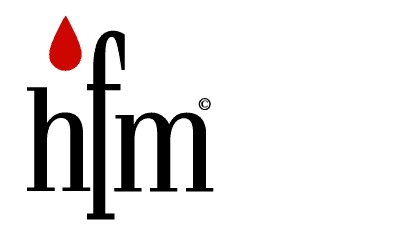
HISTORY
Founded in 1956, the Hemophilia Foundation of Michigan (HFM) began as an all-volunteer chapter of the National Hemophilia Foundation. In 1969 HFM received United Way funding that allowed significant organizational growth, which included hiring an executive director to advance services and education. That same year, HFM began the first-ever residential summer camp program for children with bleeding disorders, known as Bold Eagle Highlands. In the mid 1970’s Congress authorized and funded a national network of Hemophilia Treatment Centers (HTCs) and in 1984 HFM was appointed the federal Regional Core Center for Michigan, Ohio, and Indiana HTCs.
As the Regional Core Center HFM has administrative and fiduciary oversight of the federal funding of our region’s HTCs on behalf of the United States Health Resources Service Administration’s (HRSA) Maternal and Child Health Bureau (MCHB) and the Centers for Disease Control and Prevention (CDC) via the American Thrombosis and Hemophilia Network (ATHN).
In 1980 HFM worked with state legislators to extend specialized healthcare coverage provided by Michigan’s Children’s Special Healthcare Services (CSHCS) to adults as well as children with bleeding disorders. Two years later the CDC reported the first AIDS cases in people with hemophilia through the use of tainted blood products used to treat bleeding disorders. The AIDS crisis devastated our community locally, across the country, and the world. HFM expanded community support services, shared information as soon as it became available, expanded education and support for HTC staff, as well as education to the general public and legislators. The heartbreak of AIDS will forever impact the hemophilia community’s history.
The Cascade Hemophilia Consortium was founded as a non-profit subsidiary of HFM in 1994. In the early 1990’s Congress enacted section 340B of the Public Health Service Act which requires pharmaceutical manufacturers to provide discounted outpatient drugs to “covered entities” as a means to stretch scarce federal resources for institutions that serve vulnerable populations. As the Regional Core Center, HFM was eligible to apply for the 340B program. HFM made the decision to create a separate organization with HFM as the sole member agency and Cascade was created in collaboration with HFM with the mission to reduce costs of hemophilia medications and provide support to the region’s HTCs and chapters.
As the federal regional core center HFM receives Cascade funds. These funds assist with support for HFM services including multiple summer camp programs for children and young adults with bleeding disorders, as well as on-going community education and services via retreats, information sharing, and various regional programming efforts.
In 2002 the Washtenaw United Way headquarters burned down with HFM one of many local agencies housed in the facility. Ultimately, HFM’s Board of Directors made the decision to build a facility and in 2004 HFM opened the doors of our state headquarters at 1921 West Michigan Ave in Ypsilanti.
